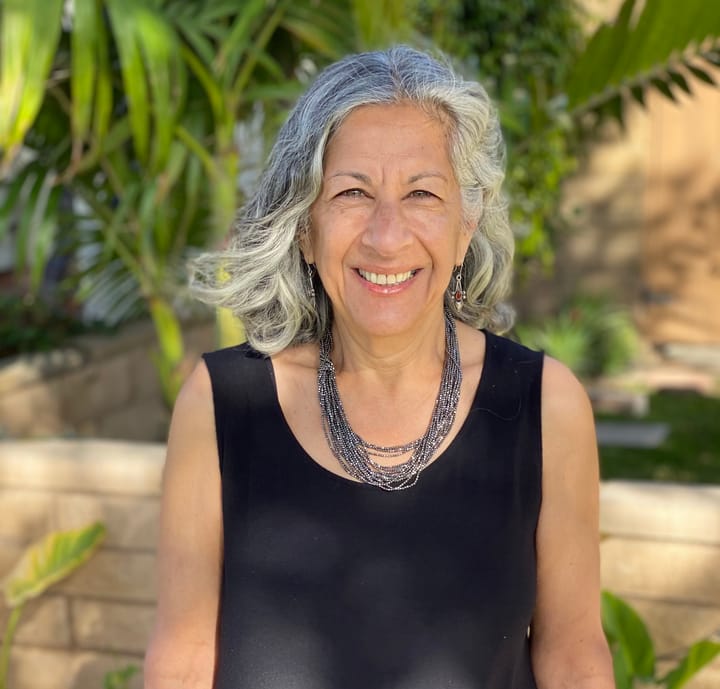Uncertainty Strikes Campus Amid Coronavirus Spread
As the coronavirus pandemic unfolds across the globe, the college community has seen direct impacts on campus: the college has amended travel and admissions policy; study abroad programs have been modified or canceled; and international students from affected countries must navigate these challenges far from home. The uncertainty of how to respond to the virus leaves students, faculty and staff dealing with confusion and fear.
As the novel coronavirus, also known as COVID-19, has spread globally, China, Iran, Italy, Japan and South Korea
have been most severely affected. Level 3 travel advisories have been issued for all of these countries, and foreign nationals from China and Iran are temporarily prohibited from entering the U.S.
Over 90,000 people have been infected with coronavirus, of which 3,000 have died. There are currently 108 confirmed cases of coronavirus in the U.S., and nine people have died. According to the Massachusetts government, there has only been one confirmed case of novel coronavirus in the state as of March 4, with one other possible case. There are no confirmed cases of the virus at the college.
In an email to the college community on Feb. 26, Martin addressed the spread of the coronavirus and its possible impact on students, faculty and staff. Another email — written by Chief Student Affairs Officer Karu Kozuma, Provost and Dean of Faculty Catherine Epstein and Chief Human Resources Officer Maria-Judith Rodriguez — was sent on behalf of the President’s Office on March 2, informing the community that all college-sponsored travel must be registered via an online registry. The college recommend- ed that any students traveling away from campus over spring break register their travel plans as well. Any college-sponsored travel to countries assigned a Level 3 Health Notice must be canceled.
Going forward, any community member who has traveled in one of these countries since Feb. 23 is advised to isolate themselves for 14 days before returning to the college. Martin encouraged any student, faculty or staff member who has traveled through a Level 3 country to speak to their class dean, Provost and Dean of Faculty Catherine Epstein and supervisor or department chair, respectively.
The college designated a task force, which includes Director of Health Services Emily Jones, to keep the community updated on COVID-19. The group created a website to provide information on the college’s responses to the coronavirus spread, as well as travel advice and health information from the Center for Disease Control.
According to the website, the college has provided additional cleaning and disinfectant supplies and face masks, increased the number of hand sanitizer stations, distributed illness prevention posters and instructed custodial staff to thoroughly disinfect common surfaces. The college has also activated its emergency operations center (EOC), who have been meeting several times a week.
The Counseling Center has also modified its procedures to prevent illness. The automated appointment confirmation text messages have been updated to state that students experiencing illness should “reschedule their appointment or call us about our teletherapy options available during COVID-19.”
Beyond logistical concerns, Martin expressed her sadness for the “suffering of the many people who have contracted the virus.” She offered her sympathy for those in the Amherst community who have been personally affected by the disease.
The college also amended its admissions policy in an attempt to accomodate the needs of international applicants who have been impacted by coronavirus, noting that “we are aware that the activities of many schools in affected areas have been indefinitely suspended, causing potentially significant impact on all aspects of school life.” Admissions encourages those who have been affected by coronavirus notify the office, which will take it into account as part of the holistic evaluation process.
On March 4, Chief Student Affairs Officer Karu Kozuma will host an open forum to discuss how the college plans to respond to new developments in the spread of coronavirus. Martin and Jennifer Brown, the Town of Amherst’s Public Health Nurse, will also participate in the forum, which takes place in the Cole Assembly Room in Converse Hall at 5 p.m.
Additionally, to support students from regions of the globe impacted by the coronavirus, the CISE and Counseling Center are hosting a coronavirus “support space” on March 12 in the Keefe McCaffrey room from 6 to 7:30 p.m. This event, which will be led by two bilingual, bicultural therapists, is intended to spark discussion about student concerns and fears about COVID-19.
Measures taken by the administration pale to those in other parts of the world with widespread contact with the virus. Martin announced that study abroad programs in areas affected by the novel coronavirus may be canceled or significantly modified. Numerous students have been forced to return home due to health and safety concerns of their programs. The college has been in direct communication with 26 students studying abroad in Italy and four students that had planned to study in South Korea later in the semester.
Director of the Global Education Office Janna Behrens has been leading communication with students and the study abroad program coordinators to adapt to the ever-changing situation.
Many students had to revise their study abroad plans for the semester. Julia Shea ’21 (who has worked as The Student’s design editor) and Katie Crum ’21 were both studying abroad in Florence through a Syracuse University program. At 5:30 p.m. on Feb. 25, the program officially announced that all students needed to be on a flight home by March 1.
Shea, who traveled to Florence for a studio arts program, found out that her program was being terminated at a mandatory question and answer session. “There was a lot of nervousness on campus about whether or not we were going to get shut down” Shea said. “No one really knew what was going to happen.” According to Shea, the program coordinators were concerned that the city of Florence would be shut down for an unknown amount of time. Shea mentioned that the Syracuse study abroad program was especially cautious as many of their students are tentatively stuck in China until the summer. Crum detailed the uncertainty in Florence as the virus spread, noting that the situation escalated during her last 48 hours in the city.
“It was the scariest on [Crum’s last] Tuesday when stores were selling out of masks, hand sanitizer and soap,” she said, “Italy was also passing some pretty strict policies about public gatherings and school sessions. That whole day felt weirdly scary and tense.”
Crum, Shea and the other students whose programs have been cancelled are still trying to figure out how they will stay on track for the semester. Most students plan to take online classes through their abroad programs, though some, such as Shea, are returning to Amherst in an unofficial capacity to stay connected with the community.
Other students abroad have faced similar circumstances. Abigail Davis ’21 planned to spend the semester in Singapore studying through the Yale-NUS program. Because of the virus, she will spend the rest of the semester at home in Connecticut taking online classes.
Whenever Davis left campus, she had to undergo temperature checks and limit her travel. Davis was concerned that she might not be let back into Singapore if she took her planned trip to Tokyo and Bali. Most worryingly, Davis feared that if the situation worsened before she came home, she would have to undergo quarantine before reentering the United States.
According to Davis, the Yale-NUS program didn’t communicate enough with students regarding quarantine protocol. One of Davis’ friends had to undergo self-isolation, and Davis feared that she would have to self-isolate as well.
“I didn’t go abroad to be stressed about taking my temperature twice a day,” Davis said. The Yale-NUS program has
not been canceled, but students were notified on Feb. 14 that they had the option to take classes online for the rest of the semester. Coordinating with Behrens, Davis elected to return home. The other exchange students in her programs decided to stay for the time being. Since Davis’ program fell through after the add-drop period, she couldn’t secure housing or reenroll at Amherst, so she will finish her semester at home.
International students at the college have also been impacted by the virus’s effects back home.
Haoran Tong ’23, from Beijing, China, has family at home in Beijing who have been affected by the virus. “My family back home are safe, but the disrupted business and the locked down communities have made their lives a lot more challenging,” he said. “To contain the virus must consume huge public resources and people are affected psychologically as well. Honestly, this takes longer to heal than the actual physical illness.”
Grea Lee ’23 from South Korea also expressed worry for her family. Her parents are unable to go out to casually meet their friends in an effort to avoid large crowds of people. Additionally,
Lee’s brother, who is in the military, has been restricted from coming home during the holidays because of the outbreak. Her friends have had their first day of the semester postponed.
News of the coronavirus outbreak reached Hantong Wu ’23, who is from the Hangzhou province in China, three days before he left for Amherst at the end of winter break. By the time he left, “everyone was wearing masks.” When he arrived in Seattle, there was extra security for those arriving from China.
“We had the biggest outbreak, but also the fastest containment,” Wu said. “In some ways, I would feel safer in China right now.”
The isolation of the college from virus-related incidents has not made it immune to the social impacts of the coronavirus’ spread and consequences. AC Bar Night — a weekly gathering at a bar in town for seniors — was recently criticized for sending an email to students making light of the virus. “The world is full of uncertainty. As coronavirus spreads, we’re left to wonder: What will become of us? of our daily routines? Will the world as we know it cease to exist? Will classes ever be cancelled because of coronavirus? Will Bar Night continue?,” the email read. It is not known who runs the Bar Night email listserv.
The email faced backlash from students who were disturbed by the trivialization of the global epidemic.
In response, the Bar Night leadership sent out an email apology expressing their regret for being “too careless to consider the broader implications of trivializing a serious disease that has caused a rampant increase in Sinophobia, xenophobia and racism.”
In a statement to The Student, the Office of Communications wrote that “we have been in touch with the students that shared the concern in order to provide support and are in the process of following up with the students responsible for the email. We will continue to take these behaviors seriously and work with students involved.”
In her email, Martin warned against falling into the trap of xenophobia.
“No one should have to fear shunning or bias,” she said.
“This is a time to engage with one another and offer support, not to fall into unwarranted assumptions, much less the prejudice and aggression that have been reported elsewhere.”




Comments ()